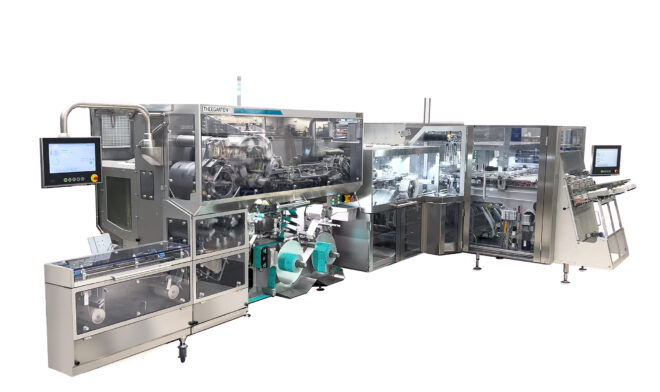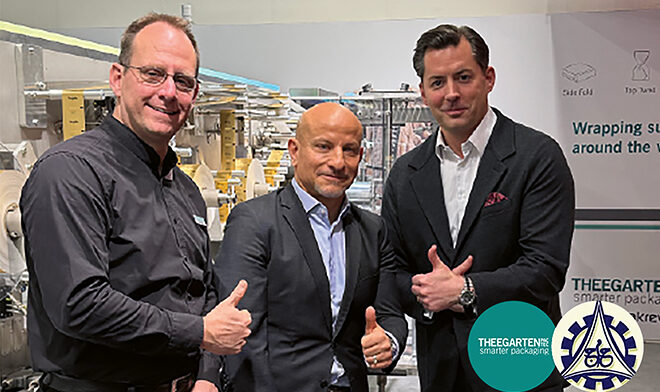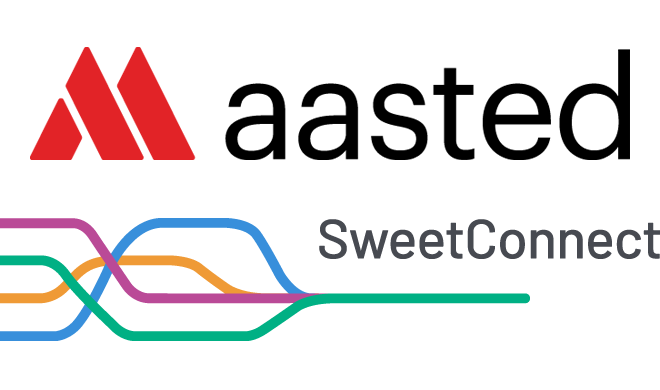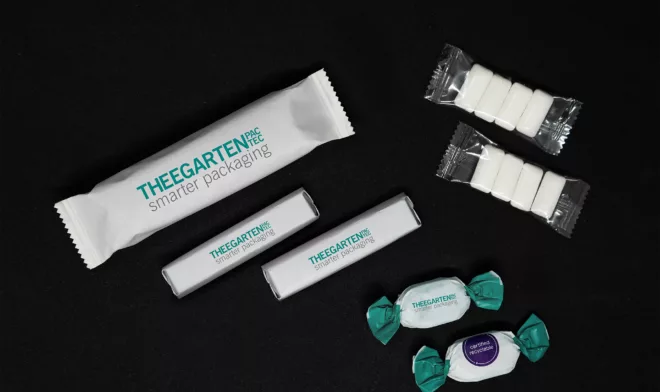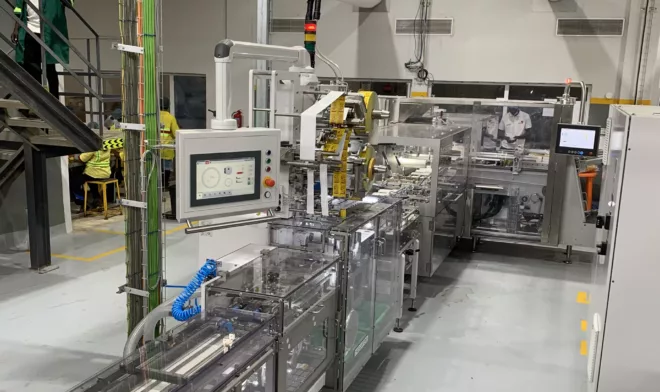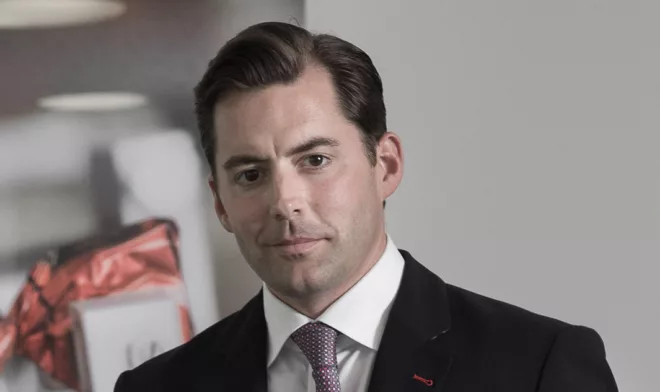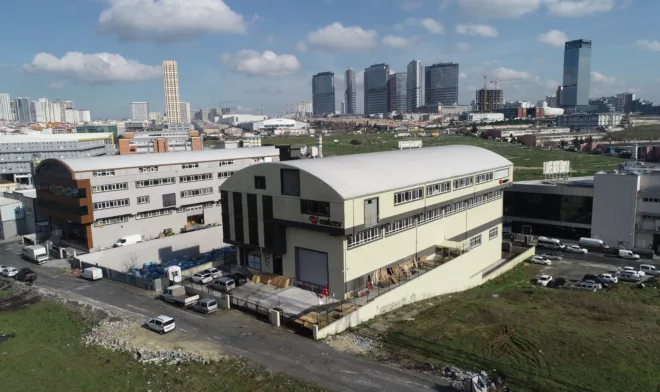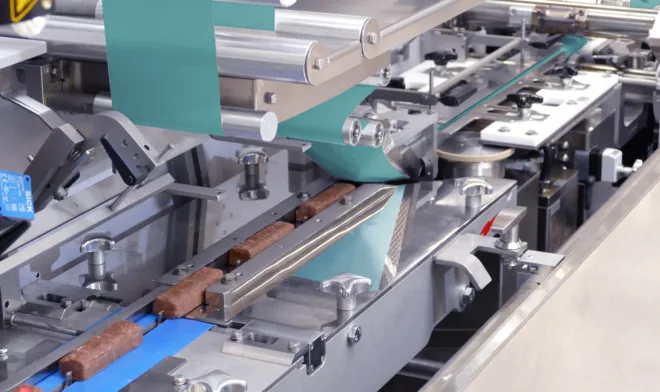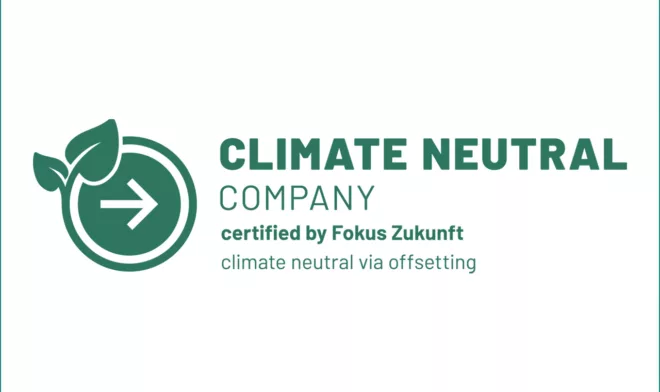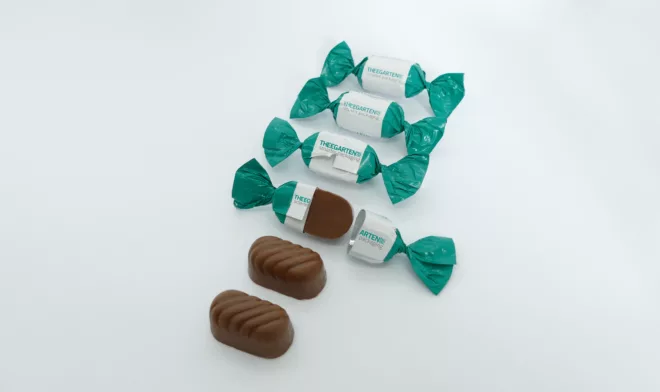The 3 pillars of sustainability
Theegarten-Pactec
Social
Decreasing emissions, increasing customer satisfaction
Being an international operating company, our service and installation activities require us to travel long distances. By efficient trip optimisation, the use of environmentally friendly means of transport and the expansion of our remote support, we are continuously reducing our emissions without compromising customer satisfaction.
Customised consulting for your requirements
Sustainable packaging solutions are unfortunately often associated with higher costs. We therefore advise you in detail and inform you transparently about the options for your individual situation. In addition, we are constantly working on innovative solutions that are not only environmentally friendly, but also save costs in the long term and enable sustainable profitability.
Social responsibility
We are committed to social justice, diversity and fair working conditions. Diversity and equal opportunities are core values for us. This attitude is firmly anchored in our corporate governance and way of working.
Environment
Resource-saving production
Avoiding waste is one of our most important targets. We rely on resource-saving manufacturing methods and energy-efficient production processes to minimise our ecological footprint. By recycling and recovery operations, we contribute to waste avoidance and environmental protection.
Sustainable materials
We offer solutions that increase the use of environmentally friendly packaging materials. Recyclable materials for the circular economy, such as monofilms or paper-based packaging materials, are steps in the right direction.
Energy efficient machines
Our packaging machines are characterised by innovative technologies that save energy and contribute to sustainability. Furthermore our machines are known for their longevity.
Economic
Long-term sustainability strategy
We focus on long-term solutions rather than short-term trends. Consequently, we have a holistic strategy to integrate sustainability into all our business processes. From product development to production, we are continuously improving our environmental and social contribution.
Responsibility in the supply chain
Sustainable supply chains are of high importance to us. To ensure that our suppliers also meet our high sustainability standards, we cooperate closely with them. Together, we are committed to fair working conditions, environmental protection and social responsibility.
Patented unique solutions
Being an innovative company, we invest in research and development to create innovative solutions for sustainable packaging machines. Our patents enable us to offer unique technologies that increase resource efficiency and environmental friendliness.
Carbon Footprint
We are aware of the responsibility as a company to future generations and have acted accordingly. For a reasonable calculation of our carbon footprint we took the years 2014 (before the new construction of the factory) and 2019 (before the Corona pandemic). Drawing up the emissions balance for the years 2020 or 2021 would have led to an incorrect result. Due to the Corona-related restrictions on our economic activities and reduced business travels, significantly less CO2 was emitted compared to a “normal” business year.
The greenhouse gas balance sheet now available shows emissions that arise in direct connection with Theegarten-Pactec’s business activities and was prepared in accordance with the guidelines of the Greenhouse Gas Protocol Corporate Standard (GHG Protocol), which is accepted as a standard worldwide.
The impact of our company on the climate has been determined for us by Fokus Zukunft GmbH & Co. KG: Our carbon footprint is approx. 2,271.87 tons of CO2 equivalents per year. On average, a person in Germany causes about 10.8 tons of CO2 per year through his or her lifestyle.
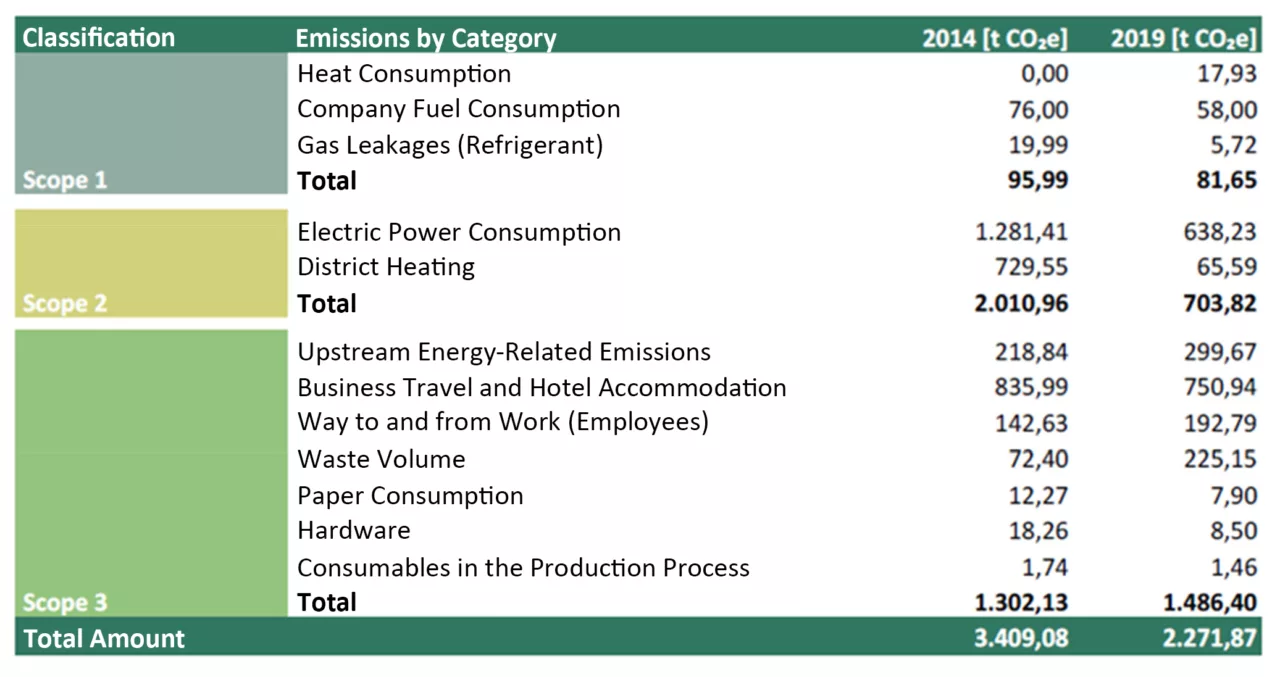
Carbon Certificate Projects
As we will not be able to avoid business trips (for example in the assembly and commissioning of our machines) and electricity in the future, we have looked at alternatives. One of them is the purchase of high-quality carbon certificates. These certificates are sold by companies that have a positive carbon balance (for example wind power plants, hydroelectric power plants, etc.).
For this reason, we have had the greenhouse gas emissions caused by our company’s activities recorded and offset by purchasing a total of 4,550 climate protection certificates for the years 2023 and 2024. These certificates support a wind energy project in Mauritania that has been certified by the Verified Carbon Standard, a hydropower project in Türkiye that has also been certified by the Verified Carbon Standard, a biomass project in Chile that has been certified by the Clean Development Mechanism and a wind energy project in Mexico that has also been certified by the Clean Development Mechanism.
Greenhouse gases are evenly distributed in the atmosphere. Therefore, it makes sense to avoid emissions where the costs are lowest. In addition, projects in emerging and developing countries help to improve the economic, social and ecological situation and support the realization of the sustainability goals of the United Nations. For emerging and developing countries, emissions trading is a key driver for the transfer of clean technologies and sustainable economic development.
This greenhouse gas balance sheet provides a transparent overview of our company’s greenhouse gas emissions. The report thus forms an important keystone in our commitment to climate protection. On the basis of the determined footprint the corresponding quantity of climate certificates has been purchased. For the compensation of our greenhouse gases, we have received the award “climate neutral company”.
In the medium and long term, we will of course look into additional carbon saving possibilities in order to further reduce the compensation of our emissions through certificates within the scope of climate neutrality.
FAQ Climate Neutral Company
Why is Theegarten-Pactec committed to global climate protection?
The international community has agreed that global warming must be limited to below 2 degrees Celsius – or even better still to 1.5 degrees – to prevent catastrophic consequences. However, the current pledges made by individual states are only sufficient to limit global warming to a maximum of 4 degrees. Closing this ambition gap will require additional and substantial commitment from businesses and citizens. We have recognized that voluntary emission reductions and the compensation of unavoidable emissions are essential to effectively counteract climate change. That is why we have decided to neutralize our CO2 emissions and thus want to make a contribution to a future worth living. Because we not only want to analyze the problems, but also tackle and solve them.
How is the carbon footprint measured?
The carbon footprint is a measure of the amount of greenhouse gases (measured in CO₂ equivalents) produced directly and indirectly, through an activity of an individual, a company, an organization or a product. It includes the resulting emissions from raw materials, production, transport, trade, use, recycling and disposal. The basic idea behind the carbon footprint is therefore to create a basis on which influences on the climate can be measured, evaluated and compared. In this way, necessary reduction potentials can be identified, measures developed and their effectiveness evaluated.
What does climate neutrality mean?
According to the principle of the “Clean Development Mechanism” described in the Kyoto Protocol, greenhouse gases that are emitted in one place on earth and cannot be avoided should be saved by climate protection projects in another place. To finance these, companies buy certificates for corresponding climate protection projects from the six available project sectors (biomass, cooking stoves, solar energy, forest protection, hydropower and wind energy). Each certificate represents 1 ton of CO2 saved by the respective project. There are numerous climate protection projects worldwide, most of which support renewable energy projects. The initiators of these projects receive emission credits for their commitment, which can be traded in the form of climate protection certificates. The amount is measured, for example, by comparing it with the emissions that would have resulted from the construction of a coal-fired power plant.
How was the amount of CO2 emissions of Theegarten-Pactec calculated?
We commissioned the external sustainability consulting firm Fokus Zukunft to calculate our company’s footprint. The emissions balance was calculated using the official Greenhouse Gas Protocol guidelines.
What needs to be reported regarding to the Greenhouse Gas Protocol?
Within the Greenhouse Gas Protocol, emissions are divided into Scopes 1, 2 and 3, each of which covers different types of greenhouse gas emissions. Scope 1 includes direct emissions from own energy plants. Scope 2 includes emissions that are indirectly caused by the provision of energy to the company. Scope 3 emissions are other indirect emissions that occur along the entire value chain.
Which greenhouse gases are included in the calculation?
The calculation of greenhouse gas emissions includes the seven main greenhouse gases defined by the Intergovernmental Panel on Climate Change (IPCC) and the Kyoto Protocol: carbon dioxide (CO2), methane (CH4), nitrous oxide (N2O), hydrofluorocarbons (HFCs), perfluorocarbons (PFCs), nitrogen trifluoride (NF3) and sulphur hexafluoride (SF6).
What does “CO2 equivalents” mean?
Not all of the seven main greenhouse gases are equally effective. Methane, for example, is 21 times more harmful to the climate than CO2, nitrous oxide 310 times and sulphur hexafluoride even 14,000 times. In order to compare the emissions, all greenhouse gases are therefore converted to CO2. These are then referred to as CO2 equivalents.
How are the collected consumption data converted into greenhouse gas emissions?
The conversion of the collected consumption data (e.g. electricity consumption or fuel consumption) is done by using emission factors, which indicate the emissions per unit (e.g. per kilowatt hour of electricity or liter of petrol). The emission factors mainly come from DEFRA (Department for Environment, Food and Rural Affairs), but also from the GEMIS database (Global Emissions Model of Integrated Systems, IINAS) as well as from the Ecoinvent database and are regularly updated.
How are emission certificates generated?
The initiators of climate protection projects – mainly renewable energy projects – receive emission credits for their commitment, which can be traded in the form of climate protection certificates. The amount of emission compensation is measured, for example, by comparing it with the emissions that would have resulted from the construction of a coal-fired power plant instead of generating renewable electricity.
What quality criteria do the climate protection projects meet?
The climate protection projects we purchase are accredited, approved and controlled according to one of the three internationally recognized certification standards – VCS (Verified Carbon Standard), CDM (Clean Development Mechanism) or the Gold Standard developed by WWF. The validation of the project results, in terms of the CO2 savings achieved, is certified by independent inspection agencies such as the German TÜV.
What happens to the CO2 certificates after they have been purchased?
The purchased number of CO2 certificates will be decommissioned. This is important because this decommissioning is a prerequisite for the design and marketing of CO2-neutral companies and/or products. Without decommissioning, a CO2 certificate could possibly continue to be traded on the voluntary market, which would not result in any additional reduction in emissions.
Which projects are supported by the purchased certificates?
With a total number of 4,550 certificates we support a wind energy project in Mauritania, which has been certified according to the Verified Carbon Standard, a water project in Turkey, which has also been certified according to the Verified Carbon Standard, a biomass project in Chile, which has been certified under the Clean Development Mechanism and a wind energy project in Mexico, which has also been certified under the Clean Development Mechnism.
Why are international projects supported?
Climate change is a global issue, so it does not matter where CO2 emissions are emitted or saved, in the end the sum of greenhouse gases is decisive. In Germany, the reduction or compensation of CO2 is very expensive, but in emerging and developing countries the compensation is cheaper. The Kyoto Protocol, which is binding under international law, therefore stipulates that so-called climate protection projects that avoid or store greenhouse gas emissions should take place where they are most economical. Accordingly, there are many projects in newly industrializing and developing countries, as the potential for savings through new technologies is still very high there and they can be used much more cost-effectively. In addition, the conditions for renewable energy plants (solar, wind, hydro and biomass) are often much more advantageous there. Furthermore, the projects in emerging and developing countries contribute to improving the economic, social and ecological situation and support the realisation of the sustainability goals of the United Nations. For emerging and developing countries, emissions trading is a key driver for the transfer of clean technologies and sustainably oriented economic development.


